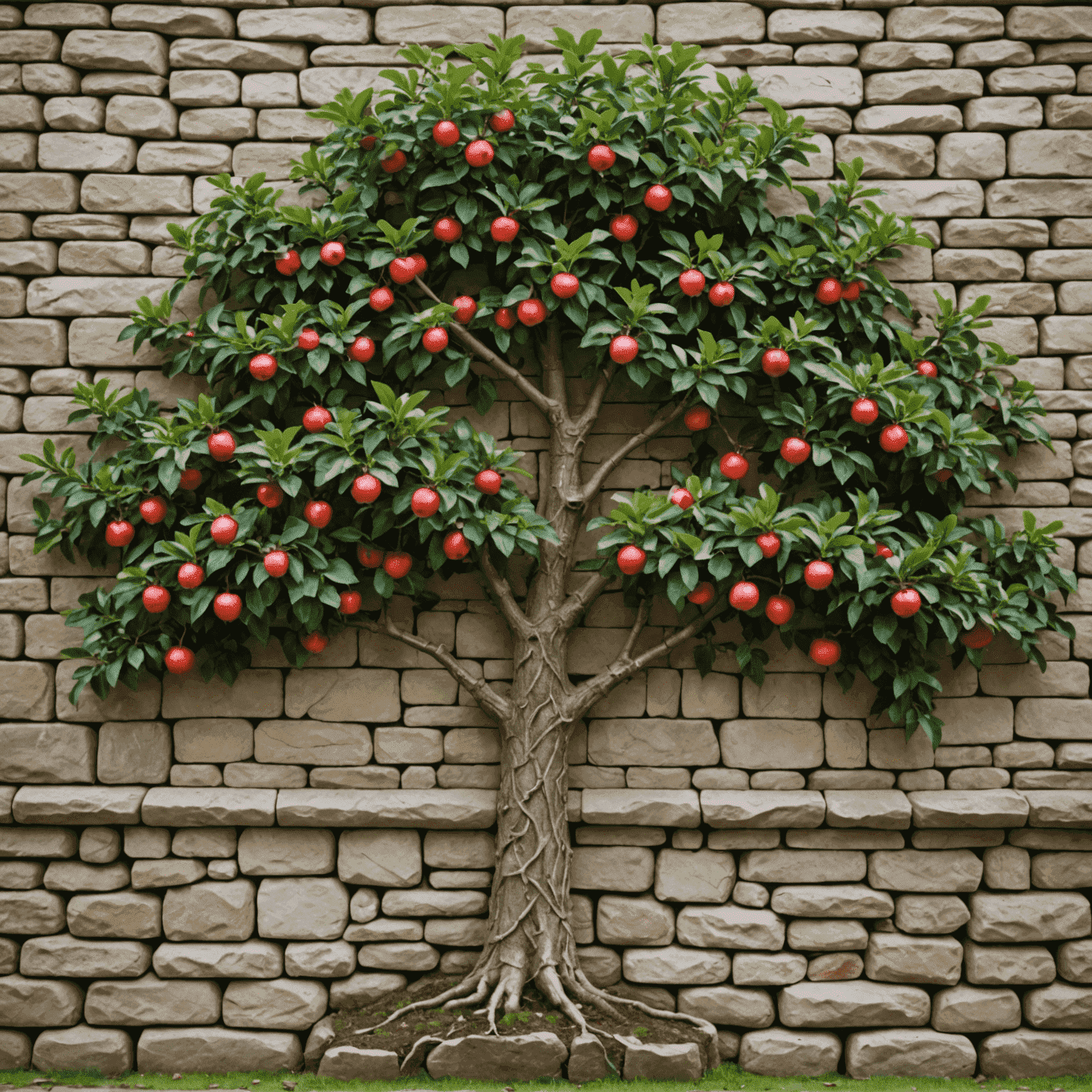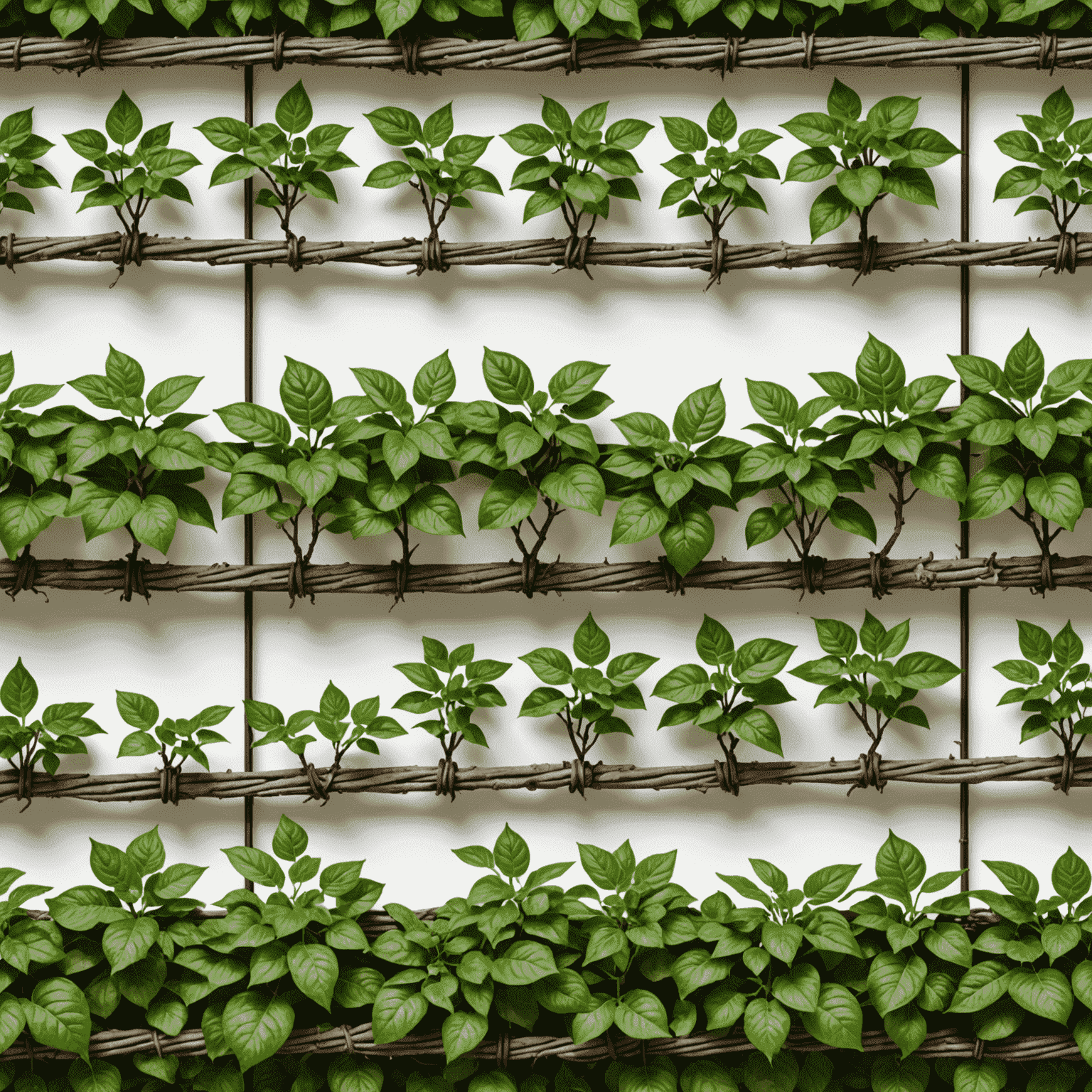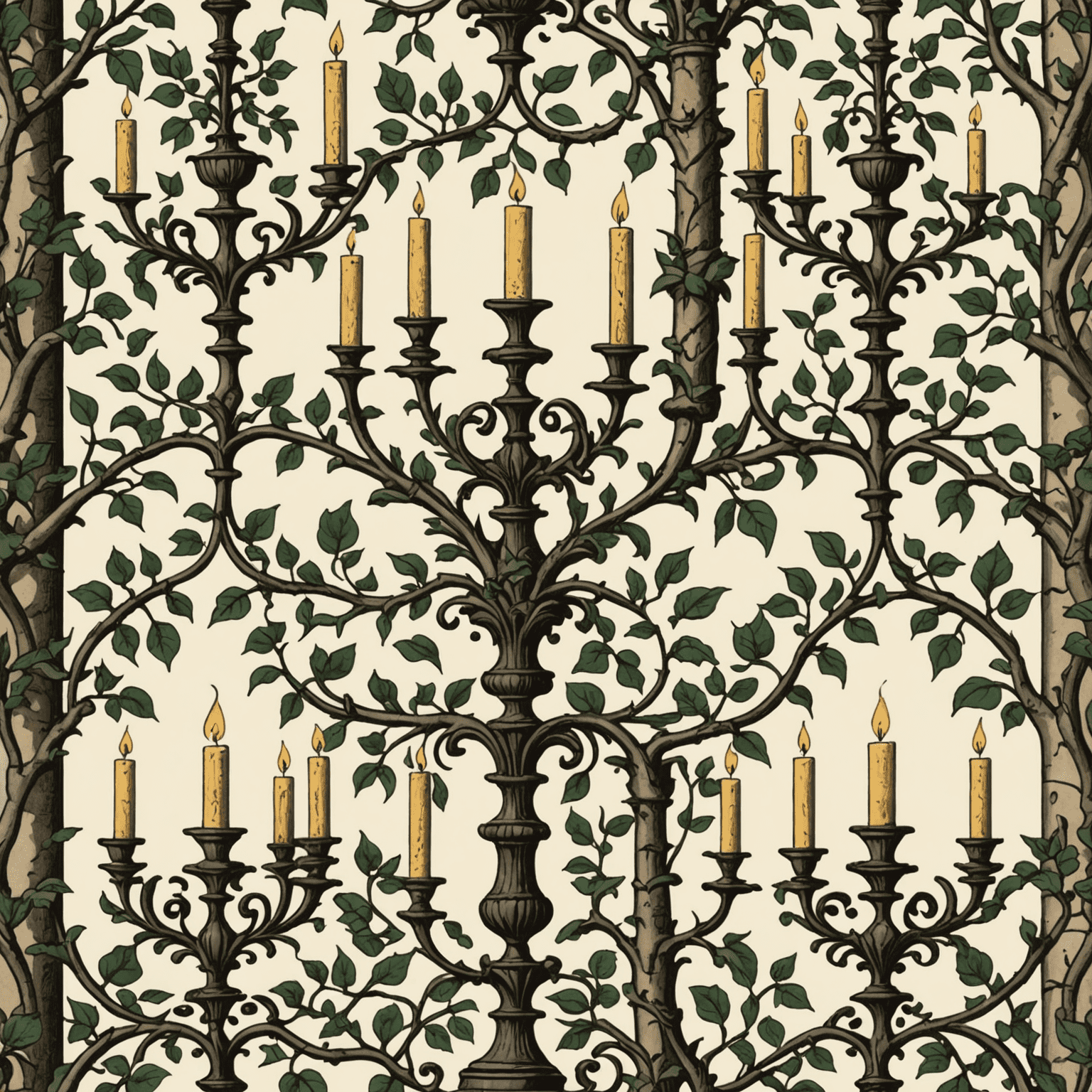Espalier Basics: The Art of Training Fruit Trees

Espalier is an ancient horticultural practice that transforms fruit trees into living works of art while maximizing space and yield. This technique is perfect for smart gardeners looking to embrace sustainable living in compact spaces.
A Brief History of Espalier
The art of espalier dates back to ancient Roman times, but it gained popularity in medieval European monasteries. Monks used this space-saving technique to grow fruit within the confines of their walled gardens, combining practicality with aesthetic beauty.
Benefits of Espalier
- Space efficiency: Perfect for small gardens or urban environments
- Increased yield: Better sun exposure leads to more fruit production
- Easier harvesting and maintenance: Fruit is easily accessible
- Aesthetic appeal: Creates a stunning visual element in your garden
- Microclimate creation: Can act as a sun trap, warming nearby areas
Common Espalier Patterns

Horizontal Cordon
Simple and effective, with branches trained horizontally from a central stem.

Fan
Branches are trained to radiate from a central point, creating a fan-like appearance.

Candelabra
Combines horizontal and vertical elements for a more complex, decorative look.
Getting Started with Espalier
To begin your espalier journey, consider these steps:
- Choose the right tree: Apples and pears are traditional choices, but many fruit trees can be espaliered.
- Select a suitable location: A sunny wall or fence is ideal.
- Install a support system: Wires or a trellis to guide the branches.
- Start training early: Begin shaping your tree when it's young and flexible.
- Practice patience: Espalier is a long-term project that rewards dedication.
Eco-Friendly Aspects of Espalier
Espalier aligns perfectly with sustainable gardening practices:
- Water efficiency: Concentrated root systems require less watering
- Natural pest control: Easier to monitor and manage pests without chemicals
- Reduced carbon footprint: Grow your own fruit locally
- Biodiversity: Espaliered trees can create habitats for beneficial insects
By mastering the basics of espalier, you're not just growing fruit; you're cultivating a sustainable, beautiful, and productive garden that harmonizes with nature and your living space. Whether you have a small urban balcony or a spacious backyard, espalier techniques offer a smart solution for the eco-conscious gardener.
